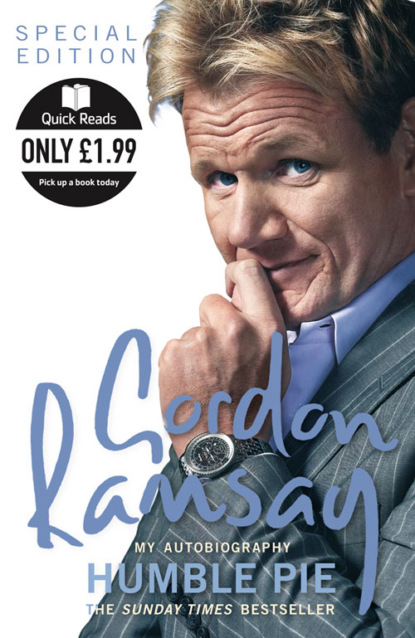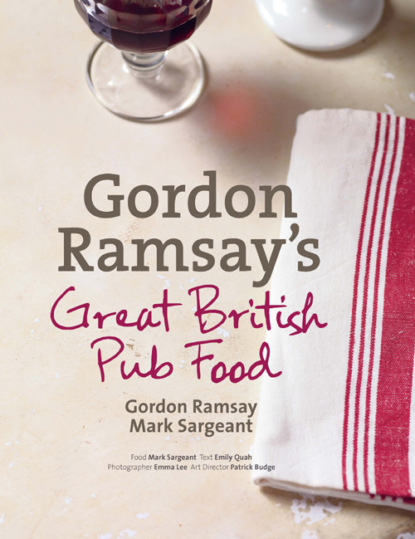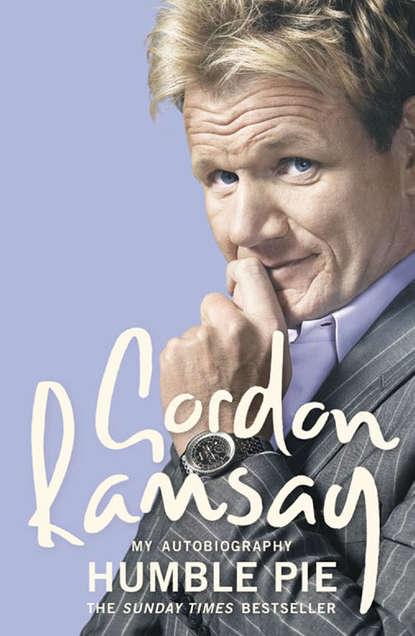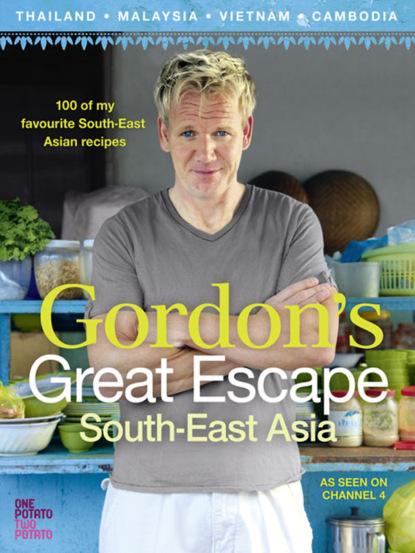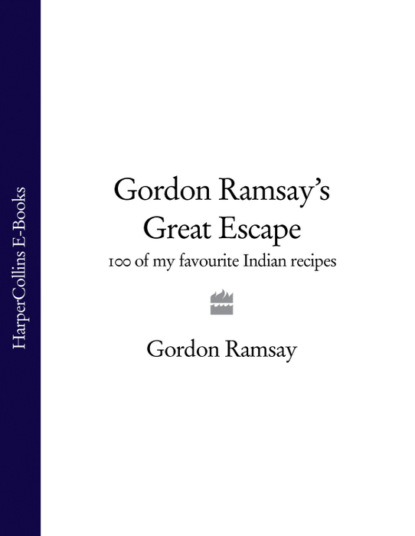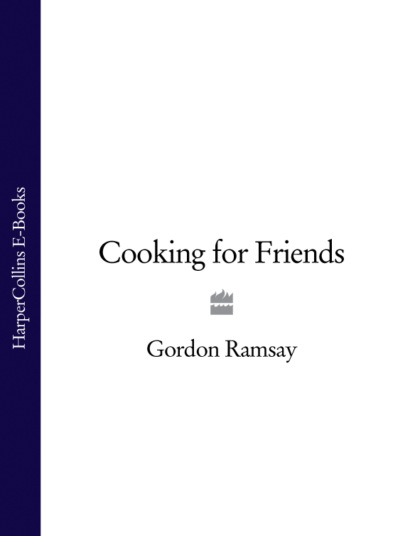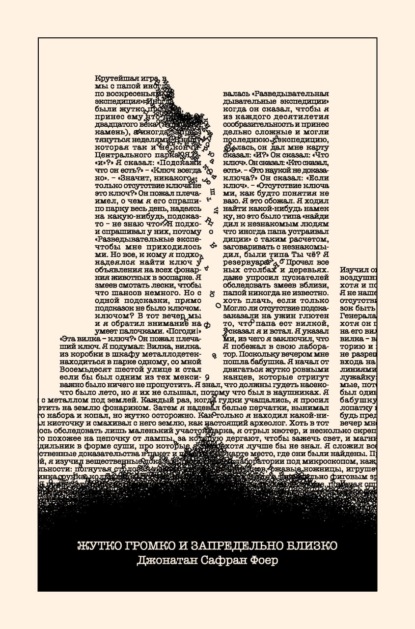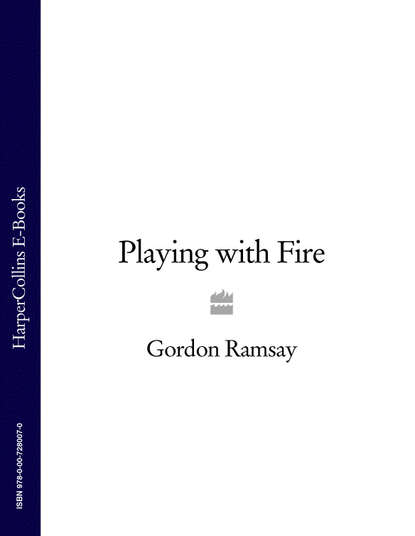
Текст
отзывы: 0 | рейтинг: 0
Gordon Ramsay’s Playing with Fire
Язык:
Английский
Тип:
Текст
Год издания:
2018
Полная версия
Полная версия
Gordon Ramsay’s Playing with Fire
Gordon Ramsay
Not a sausage. That is what Gordon Ramsay had when he started out as a chef, working 16-hour days, 6 days a week. When he was struggling to get his first restaurant in the black, he didn't think he'd be famous for a TV show about how to run profitable eateries, or that he'd be head of a business empire. But he is and he did. Here's how."In the beginning there was nothing.Not a sausage - penniless, broke, fucking nothing - and although, at a certain age, that didn’t matter hugely, there came a time when hand-me-downs, cast-offs and football boots of odd sizes all pointed to a problem that seemed to have afflicted me, my mum, my sisters, Ronnie and the whole lot of us. It was as though we had been dealt the ‘all-time dysfunctional’ poker hand.I wish I could say that, from this point on, the penny dropped and I decided to do something about it, but it wasn’t like that. It would take years before the lessons of life, business and money began to click into place - before, as they say, I had a pot to piss in.This is the story of how those lessons were learned."This is Gordon Ramsay at his raw, rugged best. PLAYING WITH FIRE is the amazing story of Gordon’s journey from sous-chef to superstar. In his no-holds-barred style, Gordon shares his passion for risk and adventure and his hard-won success secrets.
Gordon Ramsay’s
Playing with Fire
Contents
Foreword (#u53523424-b68a-5381-954d-7ec169a58b36)
1. Early Days (#u04a34cc3-26bd-5220-bc54-6825d2909e2d)
2. First Step on the Ladder (#u2264b541-d186-5f65-8cdf-d3ce8a8fbf54)
3. Royal Hospital Road (#ub0a4fc87-45c0-5101-a1a5-fd31656dc4f9)
4. A Scottish Failure (#u2e88e65f-d64b-5bf1-8d95-f9fe06f3542b)
5. Claridge’s (#u916dab76-60f7-5c06-890d-af2a8901f8b2)
6. Foreign Fields (#ucb34d672-c281-5f54-9812-ba034fb1ef18)
7. We Write to Tell You How Disappointed We Were (#u57f28d2c-6b85-5633-87be-3a4f1b2560ce)
8. The Connaught (#litres_trial_promo)
9. I Wore the Whites (#litres_trial_promo)
10. A Change of Direction (#litres_trial_promo)
11. For Sale: Intellectual Property (#litres_trial_promo)
12. An Inspector Calls (#litres_trial_promo)
13. There are Girls in my Soup (#litres_trial_promo)
14. I Buy a House (#litres_trial_promo)
15. Public Floggings (#litres_trial_promo)
16. The Fee Earners (#litres_trial_promo)
17. New York (#litres_trial_promo)
18. A Helping Hand (#litres_trial_promo)
19. Hollywood Calls (#litres_trial_promo)
20. A Change in Spending Habits (#litres_trial_promo)
Conclusion (#litres_trial_promo)
Index (#litres_trial_promo)
FOREWORD (#u004c6b85-702e-5977-9654-d6eef6fdad6f)
THE BEGINNING
And in the beginning there was nothing.
NOT A SAUSAGE – penniless, broke, fucking nothing – and although, at a certain age, that didn’t matter hugely, there came a time when hand-me-downs, cast-offs and football boots of odd sizes all pointed to a problem that seemed to have afflicted me, my mum, my sisters, Ronnie and the whole lot of us. It was as though we had been dealt the ‘all-time dysfunctional’ poker hand.
I wish I could say that, from this point on, the penny had dropped and I decided to do something about it, but it wasn’t like that. It would take years before there was any significant change – before, as they say, I had a pot to piss in.
This is the story of how that change took place.
CHAPTER ONE (#u004c6b85-702e-5977-9654-d6eef6fdad6f)
EARLY DAYS (#u004c6b85-702e-5977-9654-d6eef6fdad6f)
Work and opportunity come hand in hand, but don’t miss the big picture
MONEY ONLY CAME into my life when I received my first weekly wage. It came in a brown envelope with my name on it, and its contents disappeared faster than Jack Rabbit looking down the barrels of a sawn-off shotgun. Whatever money might have come in during my all-too-brief football days, my dad ‘handled’ for me. Whether it paid for his booze or his musical dreams, I don’t know, but very little of it came my way, and I’m pretty sure Mum didn’t see much of it either. To be honest, I was far too busy trying to be good at football to worry about it much, but in later years – much later years – I think it brought on an almost pathological need to know where my earnings went, who was handling them, and God help anyone who couldn’t explain what was happening.
This way of working, to climb the greasy pole of recognition rather than earn a living, followed me right through the early kitchens, where the only aim in this war zone was learning how to be the best. I think that this need to be the best was something that was always with me. It was, in the first instance, nothing more than a competitive streak. If I was racing my snail against the field, then mine would have to win. If I was washing pots, then mine were the cleanest, driest, and finished in the shortest time.
But after a while, this changed. I began to take notice of the competition around me and, in doing so, I realized that I was much keener to get on and do things in a way that blitzed everyone around me out of the water. Being the best was like a vanity, and I became ever-conscious that just being better was nowhere near enough. I had to attain a height that was unassailable by others.
To do this was to search out teachers, example-setters, heroes, whatever. Anybody that could point the way forward was someone whom I needed to know. The early chefs of my teenage years were not always easy to get near, but, in time, they picked up on me. They knew that there was one hungry little bastard in their kitchens and that I would do anything, work without stopping, and consume every scrap of guidance.
All I wanted was to understand how to do something, and I was the fastest learner they would ever meet. Those chefs who were good (and by that I mean lived in three dimensions) watched and encouraged me. Those with a single dimension carried on frying eggs.
As I continued along this culinary towpath, I began to see that, not only was it necessary to learn my trade thoroughly, but to try and move it up a gear. What I also noticed was that, while it was relatively easy for me to do this, nobody else seemed so driven. For me, it was just natural, the only route, and I used to listen to my mates argue and complain about conditions, the hours, the pay. All these things I couldn’t give a flying fuck about, to be honest.
Was I ever jealous of anyone who seemed to be ahead of me? No, that was never going to happen. That person became just a milestone and someone I would overtake as fast as possible. It was just like being a car in a race, and all the other cars were there to be overtaken. Even now, that is very much the case. The only difference is that it’s no longer about being the best pot washer. Now I look for more Michelin stars than anyone else, I need to have the highest audience ratings on my TV shows, and I need to sell more books than all the other celebrity chefs.
Am I always successful at being the best? Am I fuck. Instead, I just think of Jack Nicholson in One Flew Over theCuckoo’s Nest when he tells his fellow inmates that he can tear the faucet from the floor and throw it through the window. They take bets because this boast just isn’t going to happen. The camera watches him struggle, sweat and grunt until it is clear that the faucet is staying where it is. Nicholson eventually stops and looks around. ‘Well, at least I tried, which is more than you bastards did,’ he says. That’s me. Just sometimes I aim too high and fail, but it will never stop me shooting for the stars. I might quietly have to accept that Jamie is going to sell more books than I am. For now.
In the meantime, the hours were forever and blotted out any time in which to think about money, far less spend it. Time off was also for sleeping. Seventeen-hour shifts, an hour each way for travel, and the rest was for sleep. A day off once a week was also for sleeping. All fucking day. I needed rent money and I needed cash for fares, and then it was all gone. No movies, no restaurants, no cars, and I never drank.
After kitchens in London, my days in Paris were no different. I had gone there, as I knew that that was still the home of fine dining, and I was searching for the places that would inspire and teach me. This was my choice, even if at the beginning I couldn’t speak any French and knew no one. There was a constant obsession with learning, with looking for respect in a kitchen where the culture was to be as dismissive as a fly swatter. Asking for a rise was as far from my mind as ringing in with a sickie.
In time, I returned to London and started working with Pierre Koffmann at La Tante Claire. It was while I was there that I was approached by a diminutive Italian with an offer to start a new restaurant down some back street off the Fulham Road. When you have nothing except your knives, when everyone insists that you are nothing but a piece of shit on their shoes, a kind word with the promise of recognition and money is like discovering a high pair in your dysfunctional poker hand. Suddenly, there was someone inviting me to run their kitchen for them. I was going to be called ‘Chef’, with my own small brigade and, moreover, there might be some proper money on the table. The restaurant was to be called Aubergine.
A pair in cards seems a lot when you have nothing. It blots out the fact that all the other players might have a better hand, and the last thing on their minds around the table is your welfare. But, suddenly, here was this godforsaken, beaten-up old restaurant site that had already had a long history of failure. Had I but known it, this was the last-chance saloon for the Italian owners who had somehow gotten it into their minds that I could save the day for them.
Too bloody right. The salary was better than I could ever have imagined, and all I had to do was what I do best.
I had come back from Paris in 1993 and started Aubergine not long afterwards, by which time I was twenty-seven and the owner of a flat. Well, not quite a whole flat, as I went halves with a mate and we and the Building Society were the proud owners together. We let one room out, but were either too busy or too exhausted to collect the rent. The tenant didn’t come up with the goods very often, so one way or another, it was always a fucking fight to pay the mortgage.
From this early desperation, I suddenly had a boat to steer in the form of Aubergine, and it would not be long before I was getting married. Another thing happened that would also have one fucking big effect on my life, and that was meeting the father of my wife, Tana.
I had met Chris earlier on when Tana was dating another chef who, anticipating wedding bells, had brought her and her parents to Aubergine on the second night that I was open. I had gone up to their table, sat down and told them about how things were going. A nice, informal little chat and then they were gone. I learned later that Chris, Tana’s dad, had said to his wife, Greta, that I was totally preoccupied with myself and right up my own arse. Greta apparently smiled sweetly and said that I reminded her of Chris at that age. It wouldn’t be long before Chris would be playing a central role in this story.
Either way, Tana fell out with this other dickhead of a chef and, before I knew it, we were dating and got married in December 1996. In the meantime, Aubergine was fast becoming a big hit and I was earning £6,000 a month. £6,000 a month! My mate, the Building Society and I sold the flat, and Tana and I were able to put down a deposit on part of an old school building in Battersea. We moved in, and suddenly there was a seismic shift in my life because Aubergine had become a phenomenon.
The Aubergine phenomenon is interesting. This was the stage, this tiny little fledgling restaurant, where I started to make a name for myself, where I was suddenly the unknown winger who was filling the goal net every Saturday to the extent that the press looked up and started mapping out my future as a name in their columns. Newspapers, magazines and the restaurant media are always looking for the next story, and they hooked on to me big time. Why did this previously unknown, off-street restaurant suddenly have the most sought-after reservations book in London?
Celebrity status didn’t exist. Gordon Ramsay was a name that rolled off the tongue like broken glass, and the place had started on a shoestring with no big design budget, no PR and no launch party with 200 C-list celebs. If the truth were known, I didn’t really know what PR stood for. What worked was that I was putting superbly executed, modern European dishes on the menu at the lowest prices. When I look at an old Aubergine menu now, we were selling – no, giving away – three courses for £18. I also had the makings of a strong, motivated staff in both the kitchen and the dining room. The staff were all young and all looking for classical training. The hardship that we were enduring in the kitchen was probably the glue that bonded us all together. They could see me pitching in, and maybe stories of my days in Paris, mixed with the obvious dedication of working like a hungry dog, bonded us together. What would seal this bond was the success that suddenly swept over us. I had proved, with the help of my staff, that hard work and self-conviction really will work. What we all knew about was obsession and the pursuit of perfection, so every guest who came into the restaurant liked what they saw and went off to spread the word. It appealed to affluent locals who boasted about the little restaurant that they had discovered as though it were their own. No wonder I didn’t need a poncy PR firm.
On the other hand, it was also a question of timing. I can’t take any credit for that. We just happened to be pursuing perfection at exactly the right time and place. And there also were at least two vital things I didn’t yet understand.
One was that those days were producing what would be a fantastic stable of chefs-in-waiting who, one day, would put Gordon Ramsay on the world stage. I didn’t know that’s what I was doing when I hired them or when we worked alongside each other to get it right every time. I didn’t know it then, but they would be one of the most important factors in my later success.
The other issue was that, as successful as Aubergine was, I was doing everything wrong if I wanted to make money and run a business. The restaurant was certainly making money, but it wasn’t my money, and my head was buried in a hot stove all day. I had no understanding of the horizon, no wider picture, and – at least then – I didn’t realize how much I had become a means for others to feather their own nests.
The situation would not last.
Gordon Ramsay
Not a sausage. That is what Gordon Ramsay had when he started out as a chef, working 16-hour days, 6 days a week. When he was struggling to get his first restaurant in the black, he didn't think he'd be famous for a TV show about how to run profitable eateries, or that he'd be head of a business empire. But he is and he did. Here's how."In the beginning there was nothing.Not a sausage - penniless, broke, fucking nothing - and although, at a certain age, that didn’t matter hugely, there came a time when hand-me-downs, cast-offs and football boots of odd sizes all pointed to a problem that seemed to have afflicted me, my mum, my sisters, Ronnie and the whole lot of us. It was as though we had been dealt the ‘all-time dysfunctional’ poker hand.I wish I could say that, from this point on, the penny dropped and I decided to do something about it, but it wasn’t like that. It would take years before the lessons of life, business and money began to click into place - before, as they say, I had a pot to piss in.This is the story of how those lessons were learned."This is Gordon Ramsay at his raw, rugged best. PLAYING WITH FIRE is the amazing story of Gordon’s journey from sous-chef to superstar. In his no-holds-barred style, Gordon shares his passion for risk and adventure and his hard-won success secrets.
Gordon Ramsay’s
Playing with Fire
Contents
Foreword (#u53523424-b68a-5381-954d-7ec169a58b36)
1. Early Days (#u04a34cc3-26bd-5220-bc54-6825d2909e2d)
2. First Step on the Ladder (#u2264b541-d186-5f65-8cdf-d3ce8a8fbf54)
3. Royal Hospital Road (#ub0a4fc87-45c0-5101-a1a5-fd31656dc4f9)
4. A Scottish Failure (#u2e88e65f-d64b-5bf1-8d95-f9fe06f3542b)
5. Claridge’s (#u916dab76-60f7-5c06-890d-af2a8901f8b2)
6. Foreign Fields (#ucb34d672-c281-5f54-9812-ba034fb1ef18)
7. We Write to Tell You How Disappointed We Were (#u57f28d2c-6b85-5633-87be-3a4f1b2560ce)
8. The Connaught (#litres_trial_promo)
9. I Wore the Whites (#litres_trial_promo)
10. A Change of Direction (#litres_trial_promo)
11. For Sale: Intellectual Property (#litres_trial_promo)
12. An Inspector Calls (#litres_trial_promo)
13. There are Girls in my Soup (#litres_trial_promo)
14. I Buy a House (#litres_trial_promo)
15. Public Floggings (#litres_trial_promo)
16. The Fee Earners (#litres_trial_promo)
17. New York (#litres_trial_promo)
18. A Helping Hand (#litres_trial_promo)
19. Hollywood Calls (#litres_trial_promo)
20. A Change in Spending Habits (#litres_trial_promo)
Conclusion (#litres_trial_promo)
Index (#litres_trial_promo)
FOREWORD (#u004c6b85-702e-5977-9654-d6eef6fdad6f)
THE BEGINNING
And in the beginning there was nothing.
NOT A SAUSAGE – penniless, broke, fucking nothing – and although, at a certain age, that didn’t matter hugely, there came a time when hand-me-downs, cast-offs and football boots of odd sizes all pointed to a problem that seemed to have afflicted me, my mum, my sisters, Ronnie and the whole lot of us. It was as though we had been dealt the ‘all-time dysfunctional’ poker hand.
I wish I could say that, from this point on, the penny had dropped and I decided to do something about it, but it wasn’t like that. It would take years before there was any significant change – before, as they say, I had a pot to piss in.
This is the story of how that change took place.
CHAPTER ONE (#u004c6b85-702e-5977-9654-d6eef6fdad6f)
EARLY DAYS (#u004c6b85-702e-5977-9654-d6eef6fdad6f)
Work and opportunity come hand in hand, but don’t miss the big picture
MONEY ONLY CAME into my life when I received my first weekly wage. It came in a brown envelope with my name on it, and its contents disappeared faster than Jack Rabbit looking down the barrels of a sawn-off shotgun. Whatever money might have come in during my all-too-brief football days, my dad ‘handled’ for me. Whether it paid for his booze or his musical dreams, I don’t know, but very little of it came my way, and I’m pretty sure Mum didn’t see much of it either. To be honest, I was far too busy trying to be good at football to worry about it much, but in later years – much later years – I think it brought on an almost pathological need to know where my earnings went, who was handling them, and God help anyone who couldn’t explain what was happening.
This way of working, to climb the greasy pole of recognition rather than earn a living, followed me right through the early kitchens, where the only aim in this war zone was learning how to be the best. I think that this need to be the best was something that was always with me. It was, in the first instance, nothing more than a competitive streak. If I was racing my snail against the field, then mine would have to win. If I was washing pots, then mine were the cleanest, driest, and finished in the shortest time.
But after a while, this changed. I began to take notice of the competition around me and, in doing so, I realized that I was much keener to get on and do things in a way that blitzed everyone around me out of the water. Being the best was like a vanity, and I became ever-conscious that just being better was nowhere near enough. I had to attain a height that was unassailable by others.
To do this was to search out teachers, example-setters, heroes, whatever. Anybody that could point the way forward was someone whom I needed to know. The early chefs of my teenage years were not always easy to get near, but, in time, they picked up on me. They knew that there was one hungry little bastard in their kitchens and that I would do anything, work without stopping, and consume every scrap of guidance.
All I wanted was to understand how to do something, and I was the fastest learner they would ever meet. Those chefs who were good (and by that I mean lived in three dimensions) watched and encouraged me. Those with a single dimension carried on frying eggs.
As I continued along this culinary towpath, I began to see that, not only was it necessary to learn my trade thoroughly, but to try and move it up a gear. What I also noticed was that, while it was relatively easy for me to do this, nobody else seemed so driven. For me, it was just natural, the only route, and I used to listen to my mates argue and complain about conditions, the hours, the pay. All these things I couldn’t give a flying fuck about, to be honest.
Was I ever jealous of anyone who seemed to be ahead of me? No, that was never going to happen. That person became just a milestone and someone I would overtake as fast as possible. It was just like being a car in a race, and all the other cars were there to be overtaken. Even now, that is very much the case. The only difference is that it’s no longer about being the best pot washer. Now I look for more Michelin stars than anyone else, I need to have the highest audience ratings on my TV shows, and I need to sell more books than all the other celebrity chefs.
Am I always successful at being the best? Am I fuck. Instead, I just think of Jack Nicholson in One Flew Over theCuckoo’s Nest when he tells his fellow inmates that he can tear the faucet from the floor and throw it through the window. They take bets because this boast just isn’t going to happen. The camera watches him struggle, sweat and grunt until it is clear that the faucet is staying where it is. Nicholson eventually stops and looks around. ‘Well, at least I tried, which is more than you bastards did,’ he says. That’s me. Just sometimes I aim too high and fail, but it will never stop me shooting for the stars. I might quietly have to accept that Jamie is going to sell more books than I am. For now.
In the meantime, the hours were forever and blotted out any time in which to think about money, far less spend it. Time off was also for sleeping. Seventeen-hour shifts, an hour each way for travel, and the rest was for sleep. A day off once a week was also for sleeping. All fucking day. I needed rent money and I needed cash for fares, and then it was all gone. No movies, no restaurants, no cars, and I never drank.
After kitchens in London, my days in Paris were no different. I had gone there, as I knew that that was still the home of fine dining, and I was searching for the places that would inspire and teach me. This was my choice, even if at the beginning I couldn’t speak any French and knew no one. There was a constant obsession with learning, with looking for respect in a kitchen where the culture was to be as dismissive as a fly swatter. Asking for a rise was as far from my mind as ringing in with a sickie.
In time, I returned to London and started working with Pierre Koffmann at La Tante Claire. It was while I was there that I was approached by a diminutive Italian with an offer to start a new restaurant down some back street off the Fulham Road. When you have nothing except your knives, when everyone insists that you are nothing but a piece of shit on their shoes, a kind word with the promise of recognition and money is like discovering a high pair in your dysfunctional poker hand. Suddenly, there was someone inviting me to run their kitchen for them. I was going to be called ‘Chef’, with my own small brigade and, moreover, there might be some proper money on the table. The restaurant was to be called Aubergine.
A pair in cards seems a lot when you have nothing. It blots out the fact that all the other players might have a better hand, and the last thing on their minds around the table is your welfare. But, suddenly, here was this godforsaken, beaten-up old restaurant site that had already had a long history of failure. Had I but known it, this was the last-chance saloon for the Italian owners who had somehow gotten it into their minds that I could save the day for them.
Too bloody right. The salary was better than I could ever have imagined, and all I had to do was what I do best.
I had come back from Paris in 1993 and started Aubergine not long afterwards, by which time I was twenty-seven and the owner of a flat. Well, not quite a whole flat, as I went halves with a mate and we and the Building Society were the proud owners together. We let one room out, but were either too busy or too exhausted to collect the rent. The tenant didn’t come up with the goods very often, so one way or another, it was always a fucking fight to pay the mortgage.
From this early desperation, I suddenly had a boat to steer in the form of Aubergine, and it would not be long before I was getting married. Another thing happened that would also have one fucking big effect on my life, and that was meeting the father of my wife, Tana.
I had met Chris earlier on when Tana was dating another chef who, anticipating wedding bells, had brought her and her parents to Aubergine on the second night that I was open. I had gone up to their table, sat down and told them about how things were going. A nice, informal little chat and then they were gone. I learned later that Chris, Tana’s dad, had said to his wife, Greta, that I was totally preoccupied with myself and right up my own arse. Greta apparently smiled sweetly and said that I reminded her of Chris at that age. It wouldn’t be long before Chris would be playing a central role in this story.
Either way, Tana fell out with this other dickhead of a chef and, before I knew it, we were dating and got married in December 1996. In the meantime, Aubergine was fast becoming a big hit and I was earning £6,000 a month. £6,000 a month! My mate, the Building Society and I sold the flat, and Tana and I were able to put down a deposit on part of an old school building in Battersea. We moved in, and suddenly there was a seismic shift in my life because Aubergine had become a phenomenon.
The Aubergine phenomenon is interesting. This was the stage, this tiny little fledgling restaurant, where I started to make a name for myself, where I was suddenly the unknown winger who was filling the goal net every Saturday to the extent that the press looked up and started mapping out my future as a name in their columns. Newspapers, magazines and the restaurant media are always looking for the next story, and they hooked on to me big time. Why did this previously unknown, off-street restaurant suddenly have the most sought-after reservations book in London?
Celebrity status didn’t exist. Gordon Ramsay was a name that rolled off the tongue like broken glass, and the place had started on a shoestring with no big design budget, no PR and no launch party with 200 C-list celebs. If the truth were known, I didn’t really know what PR stood for. What worked was that I was putting superbly executed, modern European dishes on the menu at the lowest prices. When I look at an old Aubergine menu now, we were selling – no, giving away – three courses for £18. I also had the makings of a strong, motivated staff in both the kitchen and the dining room. The staff were all young and all looking for classical training. The hardship that we were enduring in the kitchen was probably the glue that bonded us all together. They could see me pitching in, and maybe stories of my days in Paris, mixed with the obvious dedication of working like a hungry dog, bonded us together. What would seal this bond was the success that suddenly swept over us. I had proved, with the help of my staff, that hard work and self-conviction really will work. What we all knew about was obsession and the pursuit of perfection, so every guest who came into the restaurant liked what they saw and went off to spread the word. It appealed to affluent locals who boasted about the little restaurant that they had discovered as though it were their own. No wonder I didn’t need a poncy PR firm.
On the other hand, it was also a question of timing. I can’t take any credit for that. We just happened to be pursuing perfection at exactly the right time and place. And there also were at least two vital things I didn’t yet understand.
One was that those days were producing what would be a fantastic stable of chefs-in-waiting who, one day, would put Gordon Ramsay on the world stage. I didn’t know that’s what I was doing when I hired them or when we worked alongside each other to get it right every time. I didn’t know it then, but they would be one of the most important factors in my later success.
The other issue was that, as successful as Aubergine was, I was doing everything wrong if I wanted to make money and run a business. The restaurant was certainly making money, but it wasn’t my money, and my head was buried in a hot stove all day. I had no understanding of the horizon, no wider picture, and – at least then – I didn’t realize how much I had become a means for others to feather their own nests.
The situation would not last.
Другие книги автора:
Популярные книги





